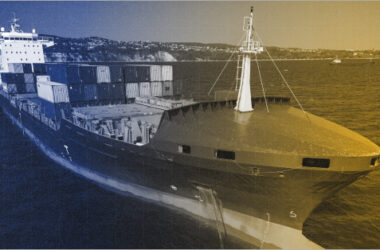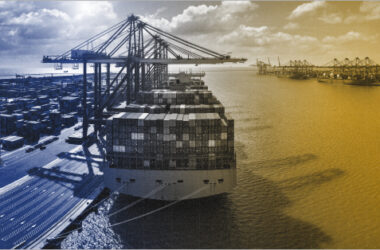In the dynamic and increasingly globalised world of commerce, ensuring the safe and secure transportation of goods is paramount for businesses. Whether you are importing raw materials, exporting finished products, or simply shipping goods across domestic locations, unforeseen circumstances during transit can lead to significant financial losses. This is where a Marine Single Transit Policy becomes an indispensable solution, especially for businesses in India. This blog will explore the compelling reasons why Single Transit Insurance is a must-have for any Indian business involved in the transportation of goods.
Understanding Marine Single Transit Policy
Single Transit Insurance is a type of insurance that offers coverage for goods during a single trip or shipment. Unlike annual Marine Insurance policies that cover multiple shipments over a year, this policy is designed for businesses that need coverage for a specific transit or consignment. The Single Transit Insurance protects against various risks, including theft, damage, or loss to goods while they are in transit by road, rail, air, or sea.
Key Features of a Single Transit Policy
- Comprehensive Coverage: Protects against risks such as theft, fire, collision, overturning, and natural disasters like floods or earthquakes.
- Customisable Policy: These Marine Insurance policies are tailored to cover specific routes, modes of transport, and types of goods.
- Easy Claims Process: A streamlined claims procedure ensures quick recovery in case of damage or loss.
- Affordable Premiums: Single Transit Insurance premiums are calculated based on the value of goods, distance, and mode of transport, making it a cost-effective solution for businesses.
Why Indian Businesses Should Purchase Single Transit Insurance
India is a rapidly growing economy with a vast network of supply chains spread across the globe. However, the country’s transport and logistics sector is not immune to challenges such as accidents, natural disasters, theft, and mishandling of goods. These challenges make it crucial for businesses to secure their shipments. Moreover, India’s unique geographical and logistical challenges underscore the need for robust transit insurance. Here are some specific reasons why Indian businesses should invest in these Marine Insurance policies:
- Provides Transit Insurance Coverage for Diverse Modes of Transportation
India’s transportation network includes roadways, railways, waterways, and airways. While this diversity offers flexibility, it also increases exposure to different types of risks. A Single Transit Insurance Policy provides coverage regardless of the mode of transport used.
Note: Certain risks may vary based on the mode of transport, and coverage might differ depending on whether the goods are shipped by air, road, or sea.
- Growing Export Market
With India becoming a major player in global trade, exporters face the challenge of ensuring their goods reach international destinations safely. Marine Single Transit Insurance is essential for safeguarding goods during international shipments.
Clarification: International shipments require policies that align with INCOTERMS, particularly for contracts like CIF (Cost, Insurance, and Freight) and FOB (Free On Board).
- Weather and Natural Disasters
India’s diverse climate and susceptibility to natural disasters like cyclones, floods, and earthquakes pose significant risks to goods in transit. Single Transit Insurance offers protection against such unforeseen events.
Note: The policy terms may vary based on the type of natural disaster (floods, earthquakes, etc.), and businesses should ensure that these risks are specifically included in the policy.
- Theft and Pilferage
The risk of theft or pilferage is a genuine concern in India, especially during road transport. Single Transit Insurance provides a safety net against these risks, ensuring that businesses don’t bear the financial burden.
- Provides Peace of Mind
Knowing that your goods are insured allows you to focus on core business activities without worrying about potential losses during transit.
- Improved Business Relationships
Securing a transit insurance policy for shipments demonstrates professionalism and builds trust with clients and business partners.
- Cost-Effectiveness
While some businesses might consider skipping insurance to save costs, the financial protection it offers far outweighs the premium. A single loss during transit can be more expensive than the transit insurance coverage itself.
- Legal and Regulatory Compliance
These Marine Insurance policies can help businesses comply with legal and contractual obligations, reducing the risk of disputes.
- Flexibility for Small Shipments
A Single Transit Insurance Policy is particularly beneficial for small or infrequent shipments, offering tailored coverage without committing to an annual policy.
Note: For small shipments, the premium rate may vary based on the type of goods and the value of the shipment, so it is essential to assess coverage limits carefully.
- Protecting Financial Interests
Goods in transit represent a substantial investment, whether in the form of raw materials or finished products. Any damage or loss can severely impact your business’s bottom line. Marine Single Transit Insurance ensures that your financial interests are protected, allowing you to recover the value of the lost or damaged goods.
- Mitigating Uncertainties in Transportation
Shipping goods, especially over long distances, involves various uncertainties. Roads may be affected by accidents or poor conditions; cargo vessels can encounter storms, and theft remains a persistent risk. A single transit policy acts as a safety net against such unpredictability.
- Compliance with Contractual Obligations
In many cases, businesses may be contractually obligated to secure insurance for the goods they are shipping. A single transit policy helps fulfill these requirements, ensuring smooth business operations and maintaining trust with partners and clients.
Who Should Buy Single Transit Insurance?
Marine Single Transit Insurance is suitable for a wide range of businesses, including:
- Manufacturers: To protect raw materials and finished goods during transportation.
- Exporters and Importers: To safeguard international shipments.
- Traders: To secure goods bought and sold across different regions.
- Logistics Providers: To provide additional assurance to clients.
How to Choose the Right Marine Single Transit Insurance for Your Business?
Choosing the right Single Transit Insurance Policy for your business in India requires a thorough understanding of your business needs and the available policy options. Here’s a step-by-step guide to help you make the right decision:
- Understand Your Business Needs
- Type of Goods: Identify whether you are shipping perishable, non-perishable, fragile, or high-value goods, as this determines the coverage required.
- Destination: Consider whether the goods are being transported domestically or internationally, as this affects the Single Transit Insurance coverage.
- Evaluate Single Transit Insurance Coverage Options
Look for policies that provide coverage for:
- Loss or damage due to accidents.
- Theft or pilferage.
- Natural disasters like floods, earthquakes, and storms.
- Damage during loading and unloading.
- Some policies may also cover war risks, strikes, and riots, so evaluate these based on your route and destination. Note: Ensure policies also clearly list exclusions, particularly for risks that are not inherently covered (like damages due to improper packaging or inherent defects).
- Compare Policies
- Premium Costs: Compare premium rates across insurers to ensure you get value for money.
- Deductibles: Check the deductible amount to know your out-of-pocket expenses during a Single Transit Insurance claim.
- Exclusions: Be aware of exclusions in the single transit policy, such as improper packing, inherent defects, or delays in transit.
- Check the Insurer’s Reputation
Research the insurer’s claim settlement ratio and customer reviews.
Opt for insurers with a strong presence and efficient customer service.
- Verify Compliance with Legal and Regulatory Requirements
Ensure the single transit policy complies with regulations set by the Insurance Regulatory and Development Authority of India (IRDAI).
For international shipments, check if the policy aligns with INCOTERMS and other global trade norms.
- Consult an Expert
Seek advice from insurance brokers or consultants specialising in marine insurance to tailor a Single Transit Insurance Policy to your specific needs.
- Negotiate Terms
Discuss the terms and conditions with the insurer, including premium rates, deductibles, and extensions for additional risks if required.
- Read the Policy Document Thoroughly
Understand all clauses, inclusions, exclusions, and claim procedures before finalising the purchase.
By following these steps, you can select a Single Transit Insurance Policy that minimises risks and ensures smooth business operations.
Final Thoughts:
Marine Single Transit Insurance is a smart investment for businesses in India, providing essential protection for goods during transportation. By safeguarding against financial losses caused by theft, damage, or unforeseen events, this insurance ensures that your business operations remain uninterrupted. Whether you are a small trader or a large exporter, the peace of mind and financial security offered by Single Transit Insurance make it a must-have for any business involved in shipping goods.
By choosing the right policy and partnering with a reliable insurer, you can turn potential transit risks into a well-managed aspect of your supply chain strategy. In an uncertain world, this Marine Insurance Policy can be your business’s assurance of resilience and success.







